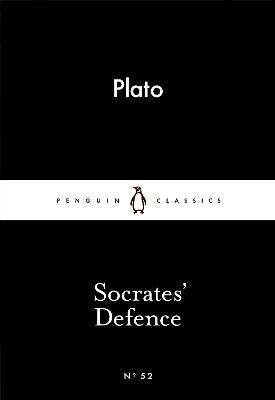Anyone who's really fighting for justice must live as a private citizen and not as a public figure if he's going to survive even a short time. (p. 35)
Socrates is brought to court for leading young people astray and not believing in the Athenian gods. Socrates' Defence is the speech Socrates presents before the court, turning the accusations against him on their head.
The text features many of the components that are familiar: Socrates as knowing nothing for certain except for knowing nothing; his one-sided interviews with his opponents; calls for truth and justice. What I wasn't expecting is the rhetoric strength of the text. Socrates can often come across as pompous, unlikable, and perhaps a bit too alien for a 21st-century reader to truly appreciate. Socrates' Defence, however, shows a confident yet feeling Socrates; one who faces his probable death in a way he thinks is best.
It honestly doesn't matter whether Socrates was a real person or a figment of Plato's - Socrates' Defence is one of the best pieces of writing I've read.
I try to persuade you, whether young or older, to give less priority, and devote less zeal, to the care of your bodies or of your money than to the care of your soul and trying to make it as good as it can be. (p. 31)
